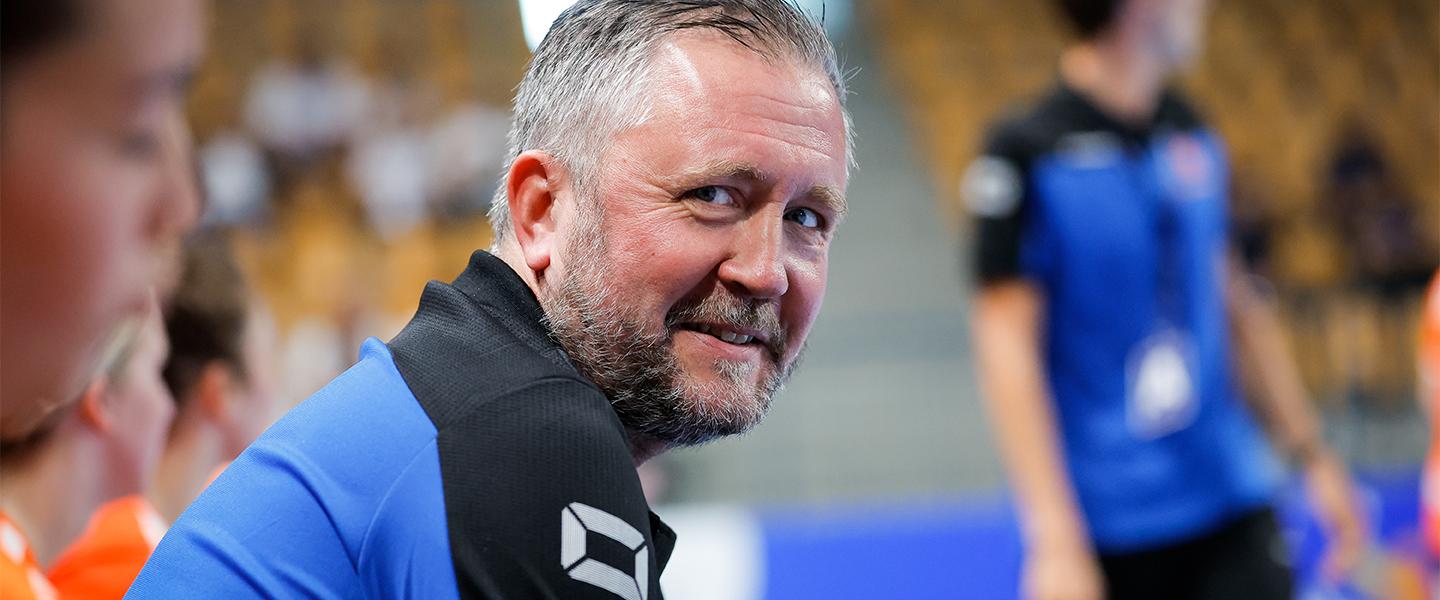Per Johansson shares a day in the life of a handball coach
13 Jul. 2022

We always talk about their decisions, whether they take a time-out in a good moment or not, or how players react to their instructions. Coaches are a shield for players on the bench and they usually try to absorb the pressure on the court in crunch time. But what makes them really tick?
As part of our celebration of International Handball Week, we take readers behind the scenes with one of the top coaches in women’s handball: Per Johansson.
The Swedish coach, who led CSM București and Rostov-Don in the last years, while also serving as Sweden, Montenegro and currently the Netherlands’ women’s national team coach, agreed to share some insight about how a day of his life unfolds.
MORNING
Per Johansson: It might be boring to tell you how my life is daily when we do not have a game or in moments like this, where everybody has a break and is on vacation. So, I would like to talk about a match day, particularly when I am coaching a club. I will also touch some points or a few hours when I am with the national team, but let’s talk about a normal match day at a club team.
Well, for me, if I do not have the feeling I have to puke – sorry for this word, but it is the truth – something is a bit off. That anxiety is normal, at least for me, because it means the match is important, that everything needs to be on point. However, after that feeling wears off, it is time for business. It does not mean that I am not able to eat, in fact I can eat just normal. It is not an issue, it is just something that I got used to in the past years, as I have been getting more and more experienced.
What follows is an activation, around 11:00 AM, which gives us all a chance to get in the rhythm. Usually, I let my assistant and my performance coach lead the way and there is not much handball involved. This is a training session in the gym, or some teambuilding exercises, just to get everybody in the mood and trying to get just set for the match ahead.
AFTERNOON
Per Johansson: As the clock ticks and the match is getting closer and closer, we are starting to get into the groove. There is, probably, the last technical meeting before the match, where all the fine print is presented, so everybody is on the same page. The level of anxiety, at least for me, starts to grow now, but I am always trying to keep calm and do everything like I know best, not to stress the players even more.
I need a bit of energy for the match, so I always try to eat with the whole team, as per our schedule. I do not have any favourite food in this moment or something that I eat to be lucky, like a talisman. It might be beef, it might be chicken or fish, whatever we decide to have at the hotel, but it does not matter for me, as long as I eat. Then, as we usually are at a hotel, irrespective of the match being home or away, I try to relax a bit, to improve my energy levels before the start of the game.
EVENING
Per Johansson: And there’s the match itself. Of course, winning or losing means a lot about how my mood will be after the final whistle. If we lose, the lingering feeling is of disappointment and I cannot shake off another feeling that we could have done more – myself included, sure. If we win, then everybody is very happy and the elation is big, for everyone involved. However, juggling the feelings after a match is also something that I have started to be better at in the last years, as I got more and more experienced.
The adrenaline rush after a win is big, but I try to contain it after a few hours, because there is another game coming in the next days. It is difficult to go to sleep, but I have learnt that this is also important. No matter the result, I always have dinner with my staff after the match, to see what went good and what did not. We try to forget about the game after a few moments, because we need to focus on what will be in the future.
I also have to talk a bit about the experience as a national team’s coach. Things are a bit easier, as we talk about the schedule, because you basically enter into a bubble from the start of the tournament until its end. There is not a lot that is changing, apart from the schedule, which is more intense. In the evenings, during a tournament, I try to go to sleep earlier, because this is just the way I have been working over the past years. I wake up at 6:00 AM in the morning and then work until 9:00 AM, when everybody is asleep.

